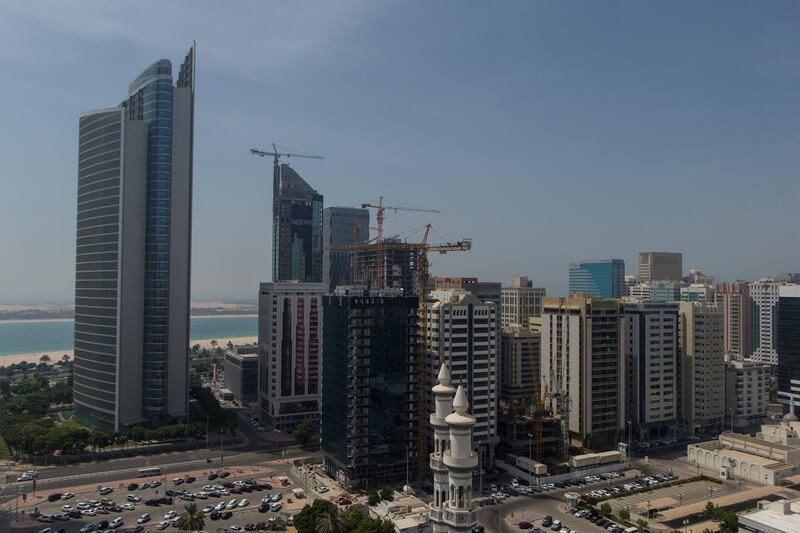The Abu Dhabi Department of Economic Development launched a centralised claims platform called Sharakah on Monday to speed up payments to private sector companies and resolve any disputed fines.
The Government Economic Partnership Platform, Sharakah, is part of the three-year Dh50 billion stimulus package for the emirate unveiled in June by Sheikh Mohamed bin Zayed Al Nahyan, Crown Prince of Abu Dhabi and Deputy Supreme Commander of the UAE Armed Forces. The latest initiative aims to support the private sector by protecting its rights, reinforcing its relationship with the government and elevating its contribution to the economy, the department said.
“Sharakah in essence is a direct and confidential channel for these companies to the senior leadership in the Government, an access that was not available before," Saif Al Hajeri, chairman of the department, said in a statement. "The feedback received will also be beneficial to review and revamp payment processes in the future so that private companies providing services to government bodies have a constant cash flow.”
On Sunday, the department told The National, it is implementing seven of the 10 strategic initiatives linked to the Dh50bn stimulus package, which aims to bolster growth in Abu Dhabi's economy, attract more foreign direct investment and create jobs.
The UAE is introducing a series of reforms aimed at boosting economic growth, creating jobs and diversifying the economy away from oil income. The measures announced over the last few months include waiving of corporate fines in Dubai and Abu Dhabi and allowing 100 per cent foreign ownership in companies in selected sectors from the end of this year.
The platform's launch comes after Sheikh Mohamed bin Zayed Al Nahyan in June gave directives to speed up the settlement of due payments on contracts for suppliers from the private sector to the government, and to review all fines for the healthcare and education sectors. The directives also included the formation of a special committee, headed by the Executive Office and the Department of Finance, to oversee all relevant and related procedures.
__________
Read more:
Abu Dhabi DED is implementing Dh50bn stimulus linked initiatives
Sheikh Mohammed bin Zayed announces Dh50 billion stimulus for Abu Dhabi
UAE foreign ownership changes will boost FDI, spur economic growth
UAE Cabinet approves new labour insurance system to replace bank guarantees for workers
__________
The new platform allows private sector firms not compensated for services supplied to government bodies to register claims as well as any disputed fines. Applicants can apply to speed up the settlement of their payment by accessing the platform online via daf.ded.abudhabi.ae or visiting the Abu Dhabi Business Centre in the department’s head office, where a dedicated team can handle their case. The platform can also be used by individuals seeking a social or education benefit, such as health insurance, who have filed a claim and not yet been reimbursed.
"We all have to work together to improve the ease of doing business in Abu Dhabi especially for entrepreneurs, SMEs and the private sector," said Mr Al Hajeri.
“By empowering them, we can increase their contribution to the economy and job creation."
The Special Committee, created to review outstanding payments due to the private sector, will oversee all procedures related to a claim, such as collecting the relevant information, reviewing the reasons for non-payment and revamping the payment process across government sectors to accelerate payout.
Mr Al Hajeri said the department appreciates the strong and mutually beneficial relationships it has with its different suppliers in the private sector, which is why it has widened the platform's scope to include reviewing fines to identify unfair or counter-productive penalties.
Mr Al Hajeri said on Sunday the department wanted to help the more than 350,000 SMEs in the UAE - which make up more than 94 per cent of the total number of companies operating in the country - address some of the current challenges for growth, such as funding and access to market opportunities. SMEs contribute to more than 60 per cent of gross domestic product and the UAE aims to expand this figure to 70 per cent by 2021.







